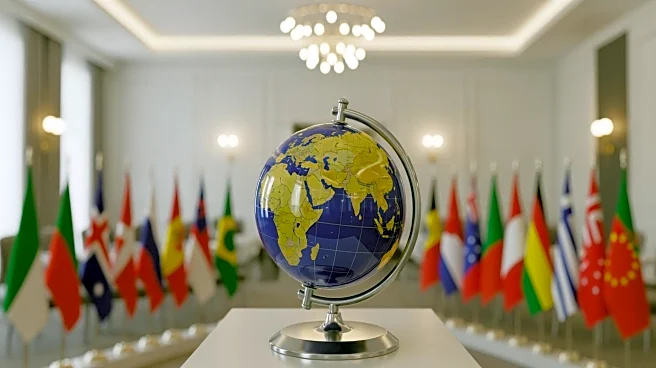What's Happening?
The Group of Seven (G7) consists of leading economic nations, including Germany, France, the UK, Italy, Japan, Canada, and the USA. The G7 meets to discuss global economic and geopolitical issues, with the presidency rotating annually among member countries.
The European Union participates at a high level in G7 meetings but is not part of the hosting rotation. The G7 has played a crucial role in strengthening international economic policies and advancing discussions on global issues such as climate change and gender equality.
Why It's Important?
The G7's discussions and initiatives have significant implications for global peace and security. By addressing pressing issues like climate change and gender equality, the G7 helps shape international policy and encourages coordinated actions among member countries. The group's ability to build consensus on these issues can lead to impactful global initiatives and foster international cooperation.
What's Next?
The G7 will continue to address emerging global challenges, with future summits likely focusing on topics such as digital transition and energy security. The group's ability to adapt its agenda to address new issues will be crucial in maintaining its relevance and influence in global economic and geopolitical discussions.
Beyond the Headlines
The G7's informal nature means it relies on consensus and voluntary compliance, which can limit its effectiveness in implementing initiatives. Additionally, the rise of alternative forums like the G20 may challenge the G7's role as a leading platform for global discussions.


















